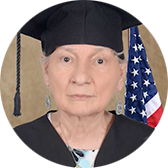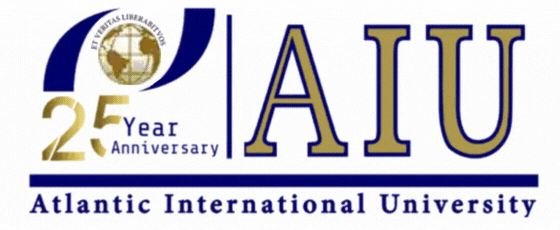
Dulce Esperanza Turcios
Honduras
Cooperation and synergy
Savings and Loans Cooperatives -better known as Credit Unions- are small organizations created to face socio-economic challenges. Although this model replicates globally, some countries show an outstanding performance in benefiting their population by granting microcredit and other loans.
Honduras, a country from Central America, annually registers a sustained growth of over 2% of their GDP, a rate well above their neighbors in Latin America and the Caribbean. Experts believe part of this success is thanks to Credit Unions, and they are not the only ones betting on this system.
Dulce Esperanza Turcios is a Doctor in Statistics, graduated from the October 2020 class of Atlantic International University. For the last 24 years, Doctor Turcios has performed as the Director of the Savings and Loans Cooperative in Honduras.
The work of Doctor Turcios aims to build a better future for the people in Honduras. Despite its sustained growth, Honduras endures a high poverty and inequality rate, and natural disasters like hurricanes often worsen this situation.
Reducing inequality
Doctor Turcios expresses that her work as Director of this Credit Union solves administrative, economic, and social problems for the Cooperative and its affiliates.
Through critical thinking and constant evaluation, the goal of this kind of organization is to empower the inhabitants of Honduras. These institutions provide loans to people in different regions, so money becomes accessible for people who otherwise wouldn’t have it.
Using these resources, entire families can find an answer to the poverty and natural damage that threatens their survival and the country’s advancement.
With a current over 60% poverty rate, Honduras found in Credit Unions an ally for development. By granting loans in zones where these benefits aren’t available, as the rural areas, these companies broaden the credit base and reduce inequality.
Empowering the people
Cooperatives are an exemplary first stone for empowering people. In Honduras, Doctor Turcios and many others allow men and women in rural areas to become owners of small businesses, increasing the employment offer and improving the quality of life.
Her work is a clear example of what the “Partnership for the Goals” Sustainable Development Goal aims. Many women are now business owners, hitting the Gender Equality goal. Also, benefiting people from more impoverished regions contributes to achieving other purposes, like No Poverty, Zero Hunger, and Reduced Inequality.
By establishing these smaller economic actors, Doctor Dulce Turcios contributes to the development and synergy in Honduras, an example of community work and participation.



























